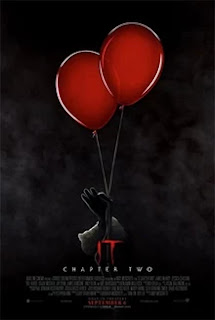"When I Lost Her, I Lost Sight Of Any Landmark That Might Have Led Me Someplace Happier..."
Around twenty minutes into The Goldfinch, Jeffrey Wright's overly mawkish and completely unbelievable side character says something along the lines of "it's a reconstruction, and not a very good one," and if ever there was a key segment of dialogue to accurately summarise a movie as whole, that one is pretty much bang on the money in the case of The Goldfinch. Directed by John Crowley, whose previous work in the form of the absolutely superb Brooklyn confirms he is a filmmaker who understands when a film is undoubtedly working or not, The Goldfinch is a bloated, overlong and thoroughly unengaging adaptation of the Pulitzer Prize winning 2013 novel of the same name by American author, Donna Tartt, a two and a half hour marathon of a movie which sacrifices an interesting narrative for dull, hateful characters and a sanctimonious, chin-wagging sensibility which assumes all audience members are the type of people who could spend all day finding interest in the texture of a painted wall instead of having, you know, a bit of fun.
Told in a narrative structure akin to that of an over-exuberant art spinner, Crowley's movie predominantly focuses on the life of Theodore "Theo" Decker, whose witnessing of a museum bombing and the subsequent death of his angelic-esque mother results in him stealing the titular famous painting from within the rubble of the attack and then spending the majority of his young life moaning about past life choices and feeling up furniture in order to impress the love of his life. With the younger form of Decker being portrayed by Oakes Fegley of Pete's Dragon fame, the first eighty minutes or so sees Decker move from family to family and location to location without any real sense of dramatic point, with the plot strangely content with introducing boring character after boring character, each of whom feel the need to talk about some of the most face-palming waffle I have ever had the displeasure of hearing within the confines of a cinema without any purpose whatsoever. With the elder side of Decker being handled by Ansel Elgort (Baby Driver), the movie then concludes with a pondering, self-absorbed level of crass melodrama which makes Hollyoaks look like a masterpiece in understatement, and even with the likes of Radiohead on the soundtrack not once, but twice, The Goldfinch is the type of holier than thou cinematic garbage which made me want to leave five minutes in, but like the good old fashioned cinephile I am, I withstood the wave and took comfort in the safe knowledge that nothing this year can be as skull-crushingly dull as Crowley's latest.




















